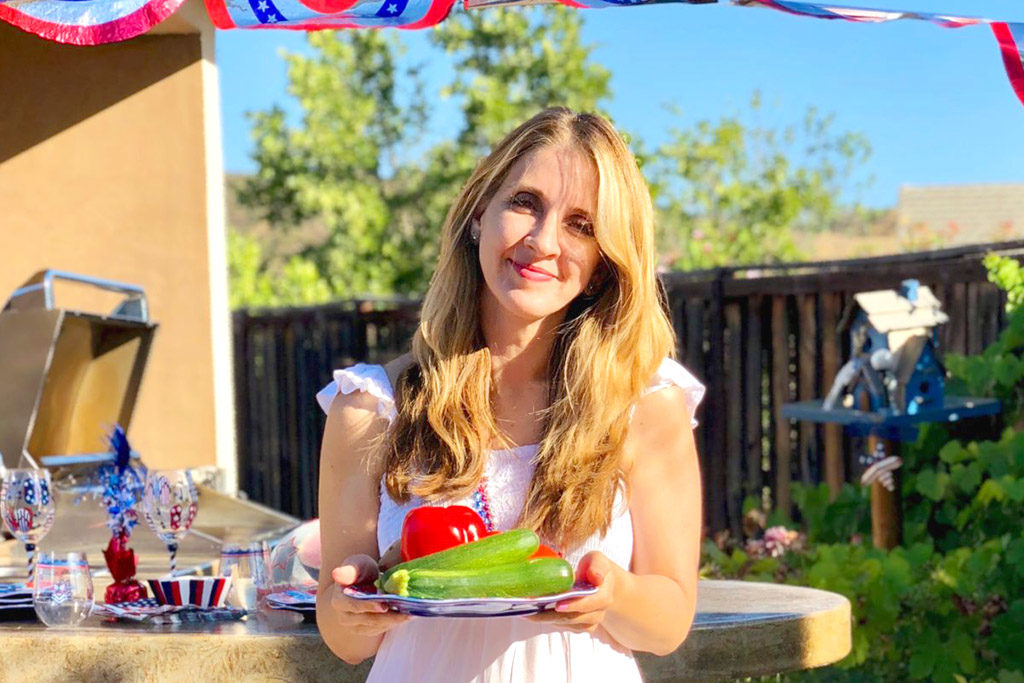

Can your BBQ Make you Sick? Healthy July 4th BBQ Options
Can your BBQ Make you Sick? With the 4th of July just around the bend, many people are thinking about one thing: Barbecue! When the weather is warm, we may find ourselves going outside to cook. This could be for a number of reasons. Maybe you just want to enjoy the lovely weather and warm season. Maybe it’s too hot to consider turning on your oven or stove. Maybe you just really love the taste of food cooked over an open flame. No matter what the reason, when we think of summer and the 4th of July, we almost always think of backyard barbecue.
But along with almost everything else on my journey, I’ve recently started wondering about barbecued foods—either those cooked over an open fire in your backyard or those cooked in a smoker—and whether or not they are good for us to eat. For a long time, grilled foods have been among some of the most heavily-touted as healthy. Grilling food adds a distinct flavor without adding calories from oils or fats. However, I couldn’t help but wonder if cooking over a fire could possibly be harmful to our bodies.
Carcinogens In Coal And Lighter Fluids
We have known for a long time that coal causes horrible health problems. Coal miners all over the world have been plagued with serious heart and lung issues as a result of breathing in coal dust. And yet we cannot always help but stack it up in our backyard grills and light it on fire to cook our food over. A 2011 study goes in depth about how coal usage and instances of lung cancer go hand-in-hand. The study looked at all environmental factors from heating to cooking and determined that in all uses, those exposed to coal had a higher rate of lung cancer.
A lot of people don’t just stop at the coal with their backyard barbecue, either. Their charcoal is soaked in some type of accelerant, or lighter fluid. For me, charcoal lighter fluid is possibly more concerning than the charcoal itself. It is difficult to find a list of ingredients for charcoal lighter fluid. Most manufacturer’s won’t say what exactly is in it except that it is volatile and combustible. We do know that based on medical studies, if it is ingested, 40% of children who ingested charcoal lighter fluid developed a type of chemical pneumonia (also known as aspiration pneumonia).
From the Materials Safety and Data Sheets from a big brand-name charcoal lighter fluid, we know that it is an aspiration hazard. We also know it is a petroleum-based hydrocarbon product. A 2006 study has linked many petroleum-based products and accelerants with certain kinds of cancers. In other words, many petroleum-based products are absolutely known as carcinogens. And these same products may be used to light the coals we cook our food over.
What About Grilling Over Gas?
OK, so if cooking over coal sounds like it might have some negative health risks, I started thinking about gas grills. Gas grills are really popular because they’re easy to start. There is no problem starting a gas grill even if it’s raining outside. What’s more, there’s no messy charcoal to soak in smelly lighter fluid. But then I started thinking about the petroleum-based products being linked to cancer in the previously-mentioned study. Propane, of course, is the gas that is generally used for gas grills. And propane is also a petroleum product.
After I thought about it, it came as no surprise then when I found out that propane is definitely shown to cause cancer! The 2012 study showed propane as a “highly potent human carcinogen.” It has been shown to induce “local and systemic tumors at multiple sites.” This is what we are using to cook food over!
Meats And Cancer
Barbecue is something a lot of people are passionate about. People absolutely love their barbecue. It turns out that it isn’t just the method we use to cook, but the actual food we are cooking that has an impact on our overall health. Men who eat red meat and eggs are at a much higher risk for prostate cancer, according to a 2011 study. Additionally, vegetarians have been shown to have a reduced rate for certain types of cancer.
Charred Foods And Cancer
A 2015 study takes things a bit further. Researchers set out to determine if cooking methods and meat consumption resulted in an increase in cancer. The results conclusively show that both eating a diet high in meat consumption and charred foods increased the likelihood for colorectal cancer. Grilling meats causes increases in carcinogens in two separate ways: first, the fuel source is often absorbed into the meat (you know how you can sometimes taste lighter fluid?). Second, the high temperature causes fat from the meat to drip onto the flame, which causes more smoke. Smoke is loaded with carcinogens!
Healthier Alternatives
For those who cannot resist the allure of a summer backyard barbecue, there are ways to make those foods cooked over a fire less potentially harmful. First, avoid cooking over anything that creates a lot of smoke. Propane, though it is carcinogenic, produces a cleaner flame with fewer emissions. There is less smoke, and therefore fewer cancer-causing agents.
Another way to make barbecued foods healthier is to stick with grilled veggies. There is less likelihood for fat to drip onto the flame and cause flare-ups of smoke and heat when grilling vegetables. This makes them a little bit healthier to eat grilled.
Finally, remove any black or charred surfaces from your food before you eat it. This will help remove some of the most potentially harmful part of the food.
Final Thoughts
It’s amazing sometimes to think about how the things we love the most can actually be harmful. It’s not my intent to make everybody who reads this think that everything they do will give them cancer. Instead, I am hoping to open a dialog and create discussions while giving people the chance to think about our environments. Our immediate environment has known implications on our overall health. Yet we often don’t think about how some of the most seemingly normal everyday activities might harm us. It turns out that what we eat and how we prepare what we eat can have a huge impact on our health. If you’re going to barbecue, consider some grilled vegetables instead of meats. Or ditch cooking over the flame altogether. An indoor grill pan is a great way to prepare barbecue-inspired foods inside without the open flame or smoke.

hey there
I'm Karen!
I have found my cancer journey to be a positive and profound transformational experience. I’m inspired to share my healing journey here, and trust you’ll find hope, encouragement and purpose as you discover the healing power that lies within you.
Join
The Mailing List!
By signing up for my newsletter, you agree with our Privacy Policy and Terms & Conditions.


